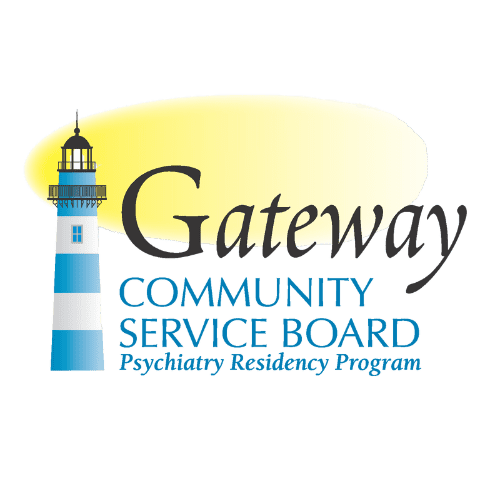SCHEDULE
Wednesday afternoons are protected for seminar time throughout the four years of the program. All seminars are at Savannah Behavioral Health Crisis Center (BHCC), unless otherwise specified.
PGY 1
ORIENTATION SEMINAR-PGY 1
This seminar covers the basic elements to transition from medical student to psychiatric resident. Key topics include the psychiatric interview, diagnosis, record keeping and an introduction to pharmacology in psychiatry. It includes an overview of systems, levels of care, the mental health team, and collaboration with non-psychiatric professionals.
FOUNDATIONS OF PSYCHIATRY-PGY 1
Topics include neurobiological development, overview of the interface of neurology and psychiatry, geriatrics in psychiatry and substance abuse. Principles of psychotherapy and research methodologies complete the year
PRINCIPLES OF ASSESSMENT-PGY 1
Topics include advanced skills in interviewing, differential diagnosis, specifically DSM 5, neurological examination, imaging, EEG, psychological testing, neuropsychological testing and genetic assessment.
PGY 2
FOUNDATIONS OF PSYCHIATRY-PGY 2
Topics include ethics, cultural/spiritual/gender considerations, quality improvement and critical reviews of the literature. It includes an introduction to resident as educator and exploration of scholarship in psychiatry. Topics in personal and professional development are interspersed throughout the year.
MODELS OF THE MIND/UNDERSTANDING-PGY 2
Human Development and DSM 5-psychopathology start the year, followed by psychotherapies (cognitive-behavioral, psychodynamic), stages of readiness for change, and narrative frameworks of understanding. Detailed, multi-dimensional case formulation are emphasized as the course progresses.
MODELS OF INTERVENTION-PGY 2
Neurobiology and psycho-pharmacology are reviewed and linked to the psychopathology presented in Models of the Mind. The second half of the year focuses on psychotherapy applications, specifically cognitive behavioral, psychodynamic approaches, and motivational interviewing. Clinical case materials are presented primarily by residents and supplemented by faculty presentations. Emphasis is on the evidence base of current interventions and the challenge of delivering them in a clinically effective and cost efficient manner.
PGY 3
FOUNDATIONS OF PSYCHIATRY-PGY 3
This advanced course builds on the foundations and experience of prior years and covers principles of Consultation-Liaison, Child and Adolescent, Forensic, Substance use Disorder and Human Sexuality in psychiatry.
Some topics may be combined with Models of Intervention and use the full time allotted for the two seminars together. Topics in professional/personal development are interspersed throughout the year.
MODELS OF INTERVENTION-PGY 3
This seminar covers advanced topics in psychopharmacology, other somatic therapies (ECT, VNS, etc.) and non-traditional approaches to mental health care. It includes blocks on Consultation-liaison, Integrated Care, Forensic, Substance use Disorder, Child and Adolescent, psychiatry and explores the adaptation of care to the needs of select populations (e.g., LGBTQ; traumatized immigrants).
ADVANCED TOPICS IN PSYCHOTHERAPY-PGY 3
Foundational experiences to date in training and knowledge of the residents in the individual therapies are built upon and extended to other treatment contexts. It covers manual based therapies, dialectical behavior therapy, advanced topics in psychodynamic care, and couples, family and group therapies.
PGY 4
INTEGRATION SEMINAR-PGY 4
Contemporary clinical practice must integrate current, multi-modal evidence based care into a clinical framework that can be applied to the full range of work environments and delivered in a clinical and cost effective manner. This seminar uses a case based approach, to help residents develop the pragmatic skills they need for today's workplace.
TRANSITION TO PRACTICE-PGY 4
This seminar explores the range of practice opportunities available for today’s graduate. It includes psychiatrist as educator and components of setting up a practice, medical economics, how to read financial statements, and challenges for graduates in the marketplace. It includes a structured review to help prepare for board examinations.
PGY 1-4
INTRODUCTION TO CONTINUOUS QUALITY IMPROVEMENT AND INDIRECT CARE
This series of seminars covers Root Cause Analysis, Contributory Factor Analysis, “Just Culture” the use of process improvement tools (e.g. PDCA/PDSA, GANNT Charts, Excel spreadsheets, etc.), and the role committee structures, audits, Risk Management, employee surveys, patient surveys, and accreditation all play in ensuring and monitoring quality care in organizations.
All residents complete annual QI projects and present them to the whole department. QI projects are necessary for maintaining board certification.
MORBIDITY AND MORTALITY CONFERENCE
A department-wide conference with residents and staff presenting 1-2 cases with morbidity or mortality elements during the most recent time period.
In addition to its quality improvement functions it serves to showcase critical thinking and professionalism. Root Cause Analyses and Just Culture tools and results are reviewed when appropriate.
APPLIED SUICIDE INTERVENTION SKILLS TRAINING (ASIST) SEMINAR
All residents take the skills building 2-day ASIST workshop along with other “First Contact” individuals (e.g. EMS, Fire Department, Law Enforcement, Schools, etc.) as part of Chatham County’s Suicide Prevention project. The workshop is highly interactive and provides a solid base for working with suicidal people.
MOTIVATIONAL INTERVIEWING
Motivational Interviewing is the pre-eminent evidence-based intervention for assisting people to make changes in their healthcare related behaviors.
For some Residents this will be an introduction; for those with Motivational Interviewing experience it will be an opportunity to build upon skills previously acquired in medical school and residency.
CASE CONFERENCE
In this conference residents present challenging cases from rotations.
- The presentation consists of a review of the medical record, issues, challenges, outcomes, adverse events, and a 10 minute review of pertinent literature.
- Two or more cases are discussed every week, depending on the case complexity.
- Each resident presents at least 6 times a year.
The goal of the presentation is increased understanding of the case, evidence of new learning, and a high quality presentations of the evidence; faculty, residents and other learners evaluate the quality of the learning experience.
These presentations become part of the resident’s learning portfolio.
